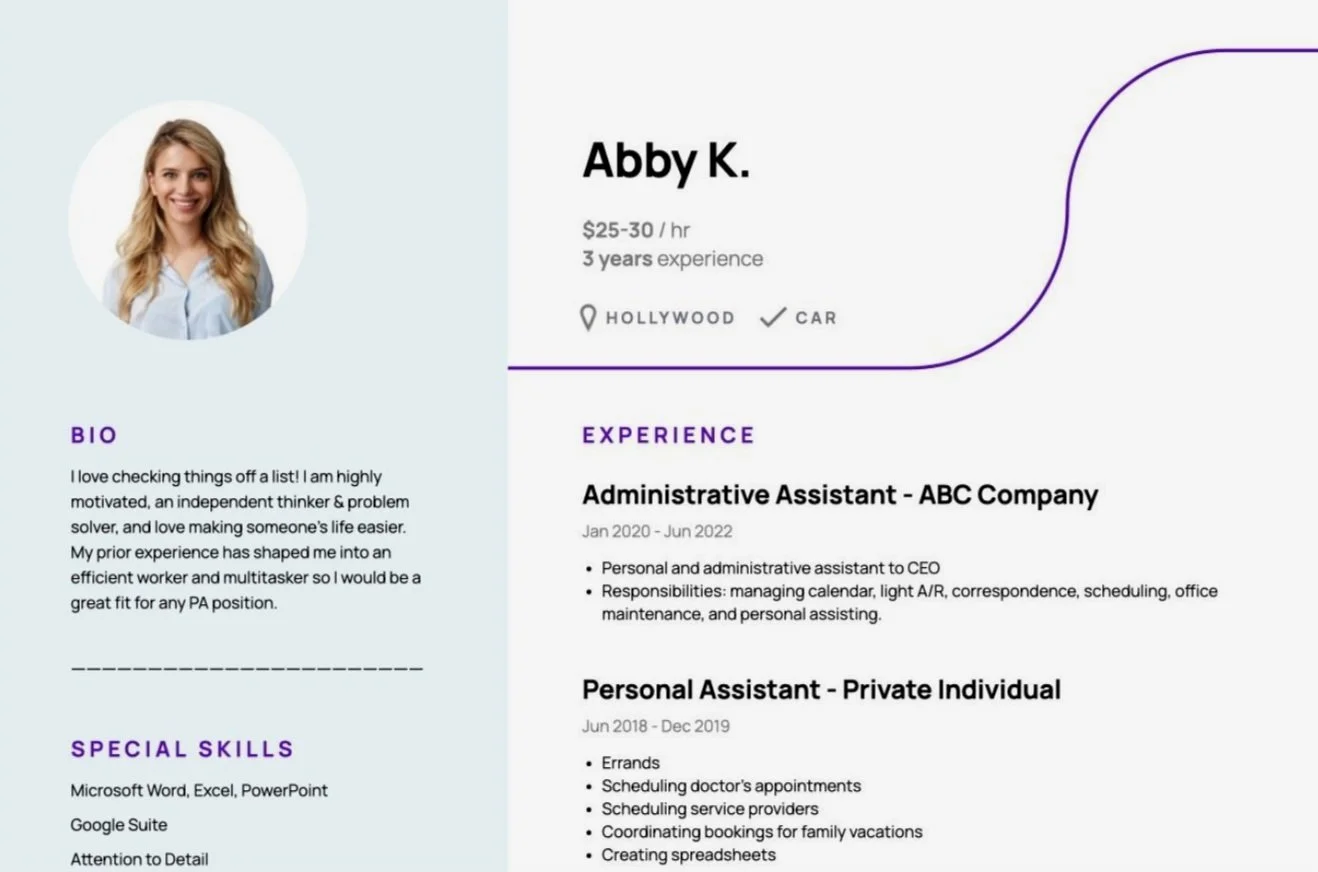How To Hire A Part Time Personal Assistant

In today’s fast-paced world, juggling personal and professional responsibilities can feel like an impossible feat. Many individuals are turning to part-time personal assistants to alleviate the burden, freeing up valuable time and energy. But navigating the hiring process can be daunting, especially for those unfamiliar with the nuances of finding reliable and efficient support.
This article provides a comprehensive guide on how to hire a part-time personal assistant. We will delve into defining your needs, crafting a compelling job description, sourcing qualified candidates, conducting thorough interviews, and ensuring a smooth onboarding process. This aims to empower you with the knowledge and tools necessary to find the perfect assistant who can seamlessly integrate into your life and help you achieve your goals.
Defining Your Needs & Responsibilities
Before embarking on the hiring journey, it's crucial to clearly define your needs and the specific tasks you envision your personal assistant handling. Are you seeking help with administrative duties, errands, household management, or travel arrangements?
Create a detailed list of responsibilities, including the frequency and time commitment required for each task. This will serve as a roadmap for both you and potential candidates, ensuring alignment and realistic expectations.
Consider using task management software or spreadsheets to track your current workload and identify areas where an assistant could provide the most significant impact.
Crafting a Compelling Job Description
A well-crafted job description is your first impression to potential candidates. It should accurately reflect the responsibilities, qualifications, and expectations of the role.
Start with a concise and engaging overview of the position and your personal brand. Clearly outline the key responsibilities, including specific tasks and tools the assistant will be using.
Specify the required skills and qualifications, such as proficiency in certain software, excellent communication skills, or prior experience in a similar role. Be realistic and avoid setting overly stringent requirements that might deter qualified candidates.
Include details about the work schedule, location, and compensation. Transparency is key to attracting the right talent.
Sourcing Qualified Candidates
Once you have a solid job description, it's time to start sourcing candidates. Online job boards like Indeed, LinkedIn, and Care.com are popular platforms for posting job openings.
Consider leveraging your personal and professional networks. Ask friends, family, and colleagues for referrals.
Specialized agencies that focus on placing personal assistants can also be a valuable resource, although they typically come with higher fees. These agencies often pre-screen candidates, saving you time and effort.
Conducting Thorough Interviews
The interview process is crucial for assessing a candidate's skills, experience, and personality. Prepare a structured interview guide with open-ended questions that allow candidates to elaborate on their qualifications.
Ask behavioral questions to understand how they have handled specific situations in the past. For example, "Tell me about a time you had to manage multiple tasks with competing deadlines."
Administer a skills test or practical exercise to evaluate their proficiency in relevant tasks. For instance, you could ask them to draft an email, schedule a meeting, or research a specific topic.
Check references to verify the candidate's work history and performance. Contact previous employers and ask about their reliability, work ethic, and communication skills.
Remember to trust your gut instinct. Compatibility and personality fit are just as important as skills and experience.
Onboarding and Training
A smooth onboarding process is essential for setting your new assistant up for success. Provide a comprehensive orientation to your routines, preferences, and expectations.
Create a detailed training plan that covers all the key tasks and responsibilities. Offer ongoing support and guidance to help them develop their skills and confidence.
Establish clear communication channels and set up regular check-ins to provide feedback and address any questions or concerns. Invest in their growth and development to foster a long-term and productive working relationship.
Legal and Financial Considerations
Before hiring a part-time personal assistant, it's important to understand the legal and financial implications. Determine whether you will be hiring them as an employee or an independent contractor.
Employees are typically entitled to benefits such as Social Security, Medicare, and unemployment insurance. Independent contractors are responsible for paying their own taxes and benefits. According to the IRS, misclassifying an employee as an independent contractor can result in significant penalties.
Consider obtaining liability insurance to protect yourself from potential legal claims arising from the assistant's actions. Consult with an attorney or accountant to ensure you are complying with all applicable laws and regulations.
The Future of Personal Assistance
The demand for part-time personal assistants is expected to continue growing as more people seek to balance their personal and professional lives. Technological advancements, such as artificial intelligence and automation, are likely to reshape the role of the personal assistant in the future.
While technology may automate some routine tasks, the need for human connection, empathy, and problem-solving skills will remain essential. The most successful personal assistants will be those who embrace technology while retaining their ability to provide personalized and proactive support. Investing in a skilled and reliable part-time personal assistant can be a game-changer, allowing you to focus on what truly matters.


















